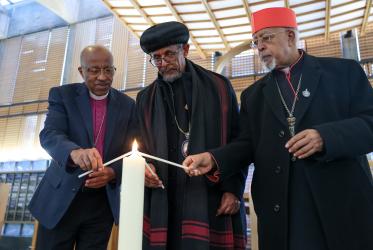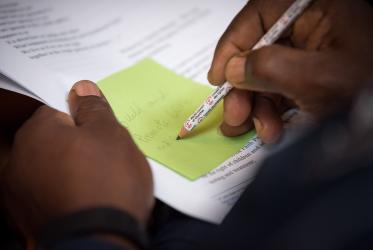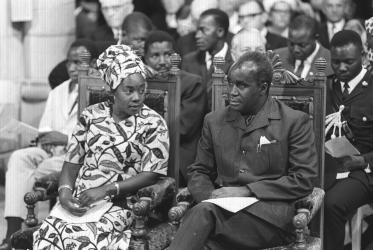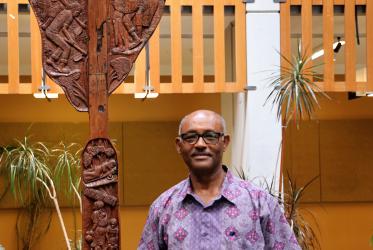Displaying 1 - 15 of 15
Prayers lift up peaceful elections in Zambia
03 August 2021
WCC offers prayer for the nation of Ethiopia
21 June 2021
Young Africans are eager to grapple with challenges
09 January 2020
Former WCC executive finds joy working for peace in Ethiopia
06 August 2019
Seven weeks of Lent highlight water crisis in Africa
01 March 2017
Land rights focus of panel discussion
17 November 2015
WCC Executive Committee speaks out on migrant crises
12 June 2015











